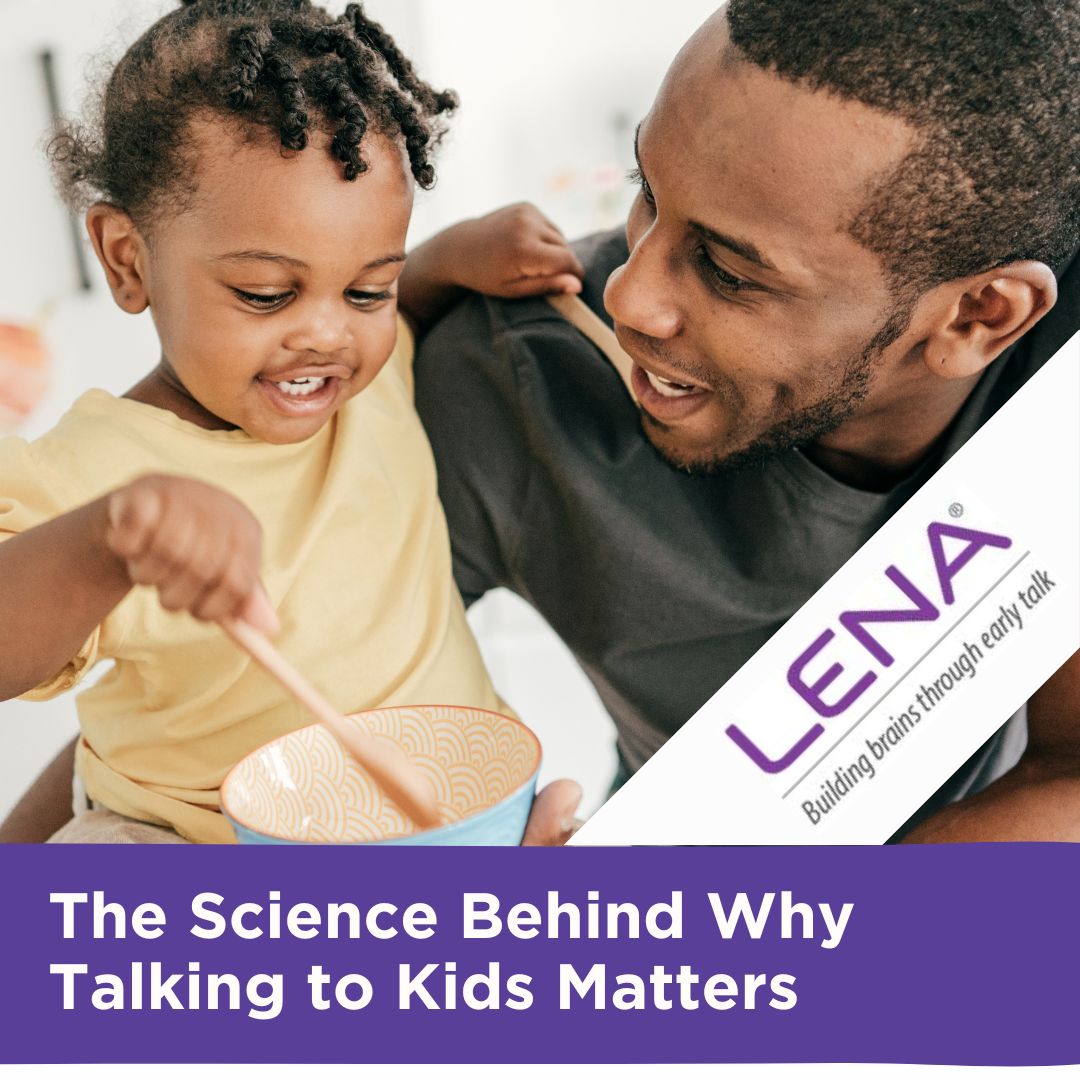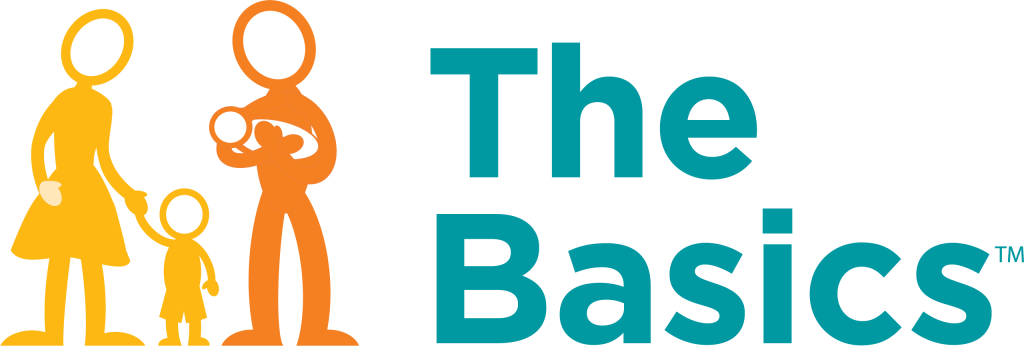The Basics Guilford team invited LENA (Language ENvironment Analysis) leaders to share how caregivers regularly talking with young children positively impacts brain development. LENA is a national nonprofit on a mission to transform children’s futures through early talk technology and data-driven programs. One of those is using small, wearable, child-safe devices to measure the quality and quantity of conversation children experience with caregivers each day. Often, this research is conducted at childcare centers, although the technology can also be used to improve parent/child interactions.
Conversational turns are defined as simple back-and-forth alternations between a child and an adult. LENA technology counts that a turn has occurred when an adult speaks and a child follows, or vice versa, with no more than five seconds in between. Any speech-like, non-cry sound counts as a turn — from an infant’s coos to a toddler’s words (either real or made up).
Conversational turns are among the most predictive metrics of positive child outcomes such as:
Brain structure
Conversational turns are linked to the strength of white matter connections between two key language regions in the brain, according to a paper published in the Journal of Neuroscience.
A second study in the Journal of Neuroscience links conversational turns as early as six months of age to white matter myelination at two years of age.
Brain function
Conversational turns are linked to activation in Broca’s area of the brain, a well-known Language center, according to a paper published in the journal Psychological Science.
Reading skills
Conversational turns are linked to increased surface area of the left perisylvian cortex, an area of the brain associated with language comprehension and reading skills, according to a paper published in the journal Child Development.
- Read more about how conversational turns are connected to reading skills!
- Another study in Frontiers in Human Neuroscience links conversational turns in the first two years of life to higher scores on standardized pre-literacy assessments at five years of age. Read the full paper!
Social-emotional development
Conversational turns are linked to increased emotional regulation, attachment, and emotional communication, according to a paper published in the journal Developmental Science.
Language, executive functioning, and reasoning scores
Conversational turns are linked to cortical growth in language and social processing regions of the brain, according to a paper published in the journal Developmental Cognitive Neuroscience.
Vocabulary skills
Conversational turns are linked to preschoolers’ vocabulary skills, according to a paper published in the journal Infant and Child Development.
There is overwhelming evidence that conversational turns have more brain-building power than adult words alone. Take a moment to learn more practical tips for talking to your kids using The Basics here.
Provided by
Jodi Whiteman, LENA Director of Growth & Partnerships
Amy Marciniak, LENA Senior Regional Partnership Director


